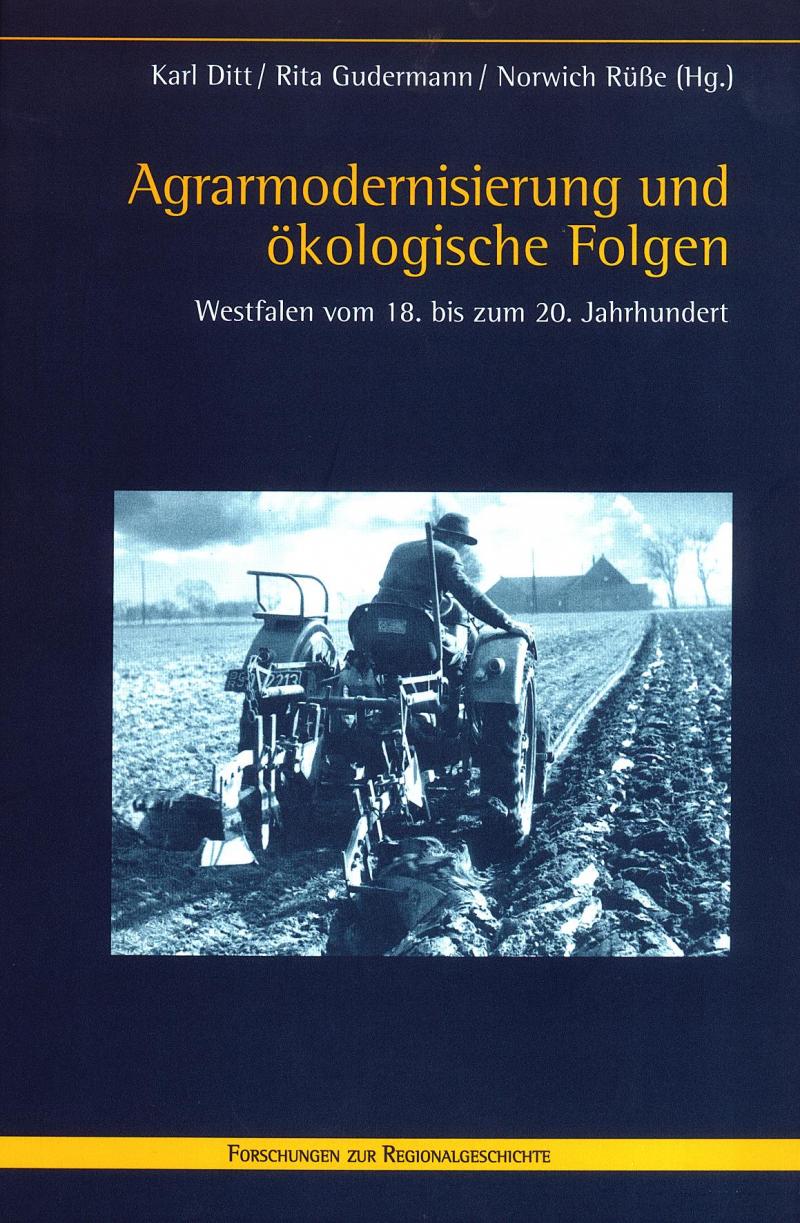Ditt, Karl, Rita Gudermann, and Norwich Ruesse, eds. Agrarmodernisierung und Ökologische Folgen: Westfalen vom 18. bis zum 20. Jahrhundert [Agrarian Modernization and Ecological Consequences: Westfalen from the 18th to the 20th Century]. Paderborn, Germany: Schoeningh, 2001.
Most contributors to Agrarmodernisierung und Ökologische Folgen deal with the ecological consequences of farming and agriculture in the twentieth century. Three aspects of environmental studies are fundamental for agricultural history: the meaning of the environment for society (or how is it defined); views of the environment (or how is it perceived); and the influence of people on the environment (or how their behavior affects it). This leads to further, more specific, questions: what were the consequences of agriculture for nature before and during agricultural modernization? Was agriculture before modernization in balance with nature or was it exploitative? Did modernization restore the lost balance or did it aggravate soil exhaustion? Were the changes seen as losses or as gains? Karl Ditt details the known consequences of modern farming for soil, water, air, flora, and fauna, and correlates the changes in farming with the changes in consumer behavior. The different processes of agrarian modernization as exemplified in Westfalia are shown in detail by Jürgen Büschenfeld (chemical applications or Chemisierung), Burkhard Theine (technical developments or Technisierung) and Paul Walter (reallocation and consolidation of arable land). The focus of the third part of the anthology is the perception and discussion of the relationship between agriculture and the environment. Willi Oberkrome describes the conflicts between Flurbereinigungsbehörden and environmental activists/conservationists in the 1950s, Bernd Tenbergen presents the development of Landschaftspflege since the eighteenth century, and Ulrich Hapke and Jörg Haafke cast light on the difficult relationship between nature protection/conservation and agriculture/farming since the nineteenth century, including the closeness of conservationists and National Socialism which, on the one hand, produced the first environmental law in 1935 but, on the other hand, did not interfere with intensified farming because of the war-bound “Erzeugungsschlacht” (“production battle”). Co-publisher Norwich Ruesse deals with agriculture and the environment from the viewpoint of the Green party and describes the functions of a Green minister for agriculture and the importance of the preservation of manifold agricultural structures based on consumer oriented politics.
(Text adapted from an H-Net review by Guenther Mahlerwein.)


